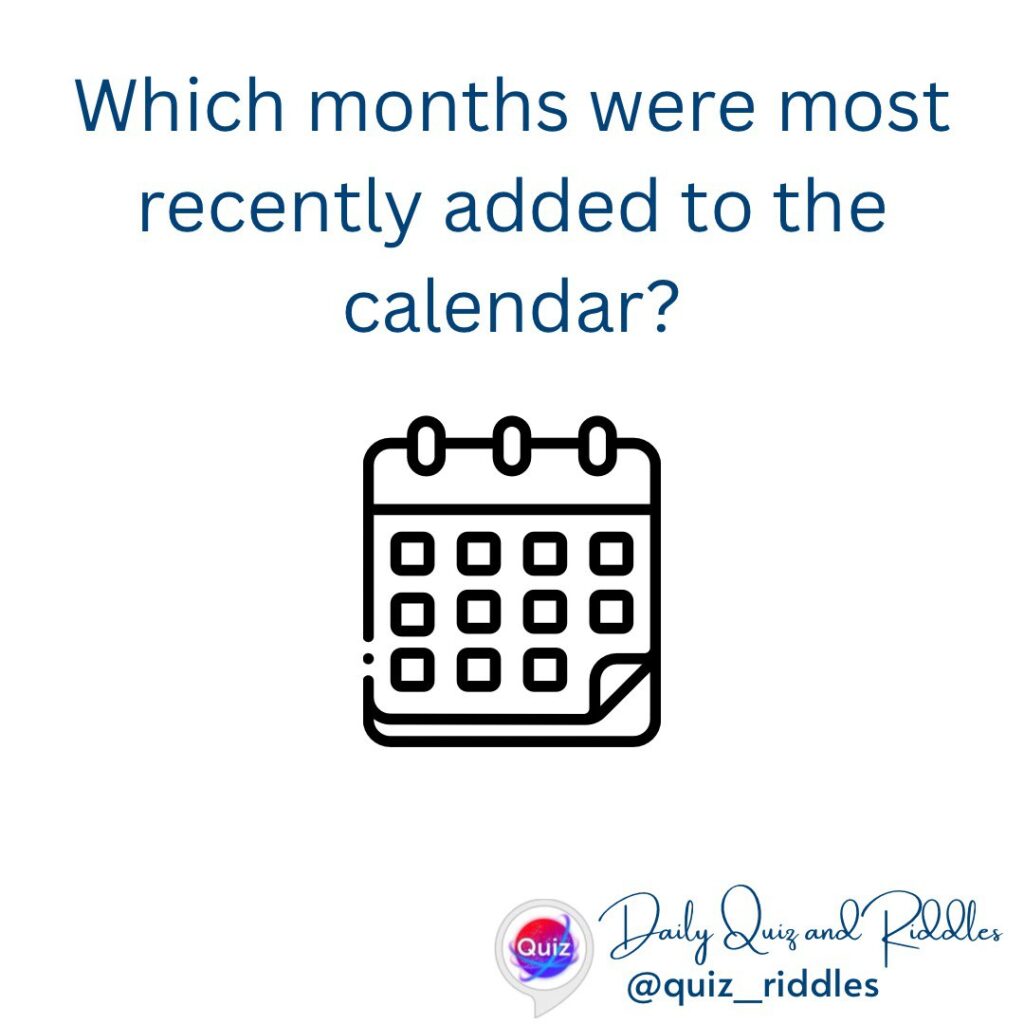Question:
Which months were most recently added to the calendar?
Answer:
January and February
Explanation
Have you ever wondered why SEPTember, which means “seven,” comes as the ninth month in the calendar? Or why OCTober (8) and DECember (10) seem to be two months late? The answer lies in the fascinating history of the calendar and the evolution of timekeeping.
The calendar we use today, the Gregorian calendar, is based on the Roman calendar, which was introduced around 700 BC. The original Roman calendar had only ten months, starting with March and ending with December. The months of January and February were not added until around 450 BC.
There has been a common misconception that July and August were the most recently added months to the calendar. However, this is not true. July and August were originally named Quintilis and Sextilis, respectively. They were renamed in honor of Julius Caesar and Augustus Caesar, the two emperors who ruled Rome during the time of the calendar’s reform.
The last two months to be added to the calendar were January and February. This happened around 700 BC or c. 450 BC when the Romans decided to adopt a 12-month calendar.
Here is a table of the months of the Roman calendar, showing their original order and their current order:
| Original Order | Current Order |
|---|---|
| Martius | March |
| Aprilis | April |
| Maius | May |
| Iunius | June |
| Quintilis | July |
| Sextilis | August |
| September | September |
| October | October |
| November | November |
| December | December |
As you can see, the months of July and August were not added to the calendar; they were simply renamed. Quintilis was renamed July in honor of Julius Caesar, and Sextilis was renamed August in honor of Augustus Caesar.
The reason why January and February were added to the calendar is not entirely clear. Some historians believe that it was done to make the calendar more accurate, as the original 10-month calendar was about 10 days shorter than the solar year. Others believe that it was done for political reasons, as January and February were named after the Roman gods Janus and Februus.
Whatever the reason, the addition of January and February to the calendar is one of the most important events in the history of timekeeping. The 12-month calendar that we use today is based on the Roman calendar, and it has been used for over 2,000 years.



